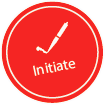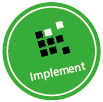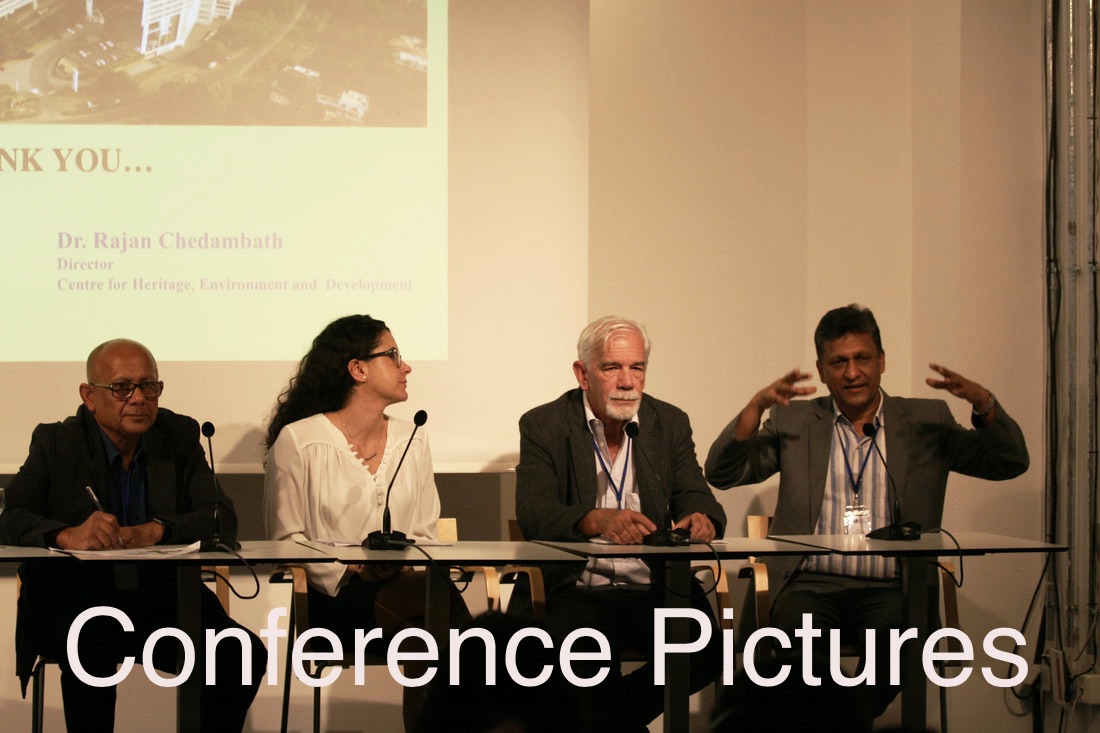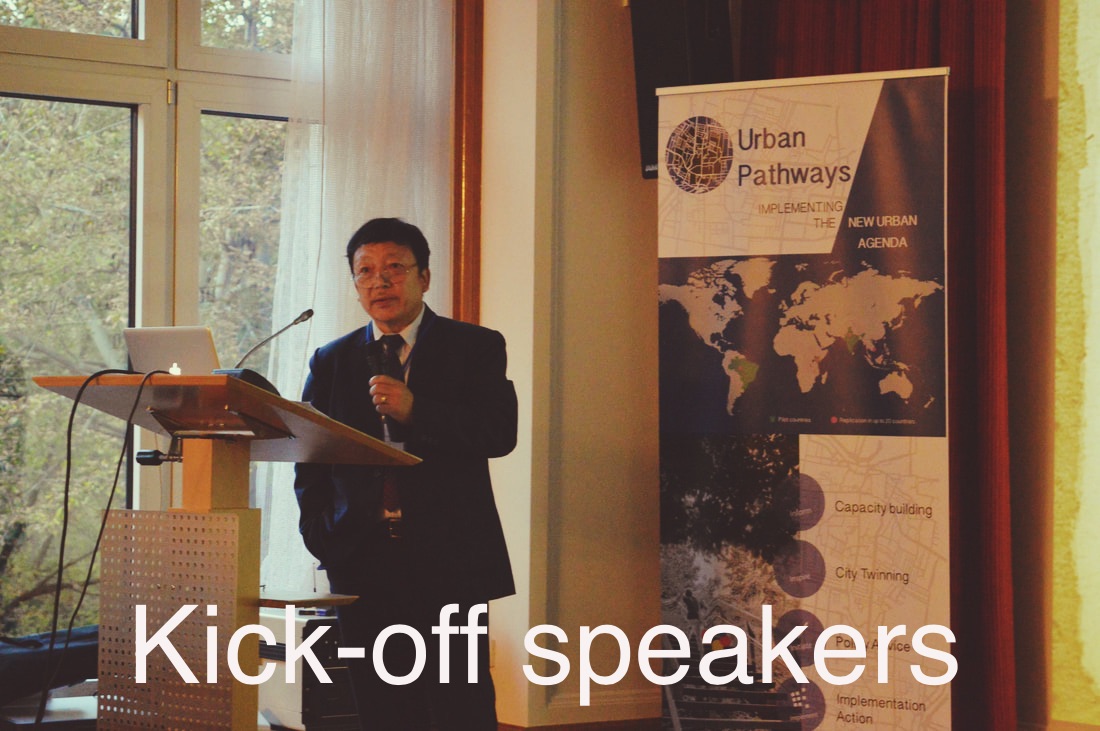Conference agendas and presentations
Kick-off meeting Urban Pathways: Delivering on the New Urban Agenda
16 - 17 October 2017
16 - 17 October 2017
The Urban Pathways Conference took place from 16 to 20 October in Berlin, Germany, with the objective to discuss concrete low-carbon energy, mobility and waste-management solutions to deliver on the New Urban Agenda. This event showcased activities of cities working together on sustainable urban development and helped taking this further into a joint program of action.
16 October 2017
Welcome and introduction: Delivering on the New Urban Agenda
Urban Pathways Kick-off
Urban Pathways Conference opened on Monday 16 October 2017 with the introduction from Anke Brummer-Kohler, Director General of the Federal Ministry for the Environment, André Dzikus, Coordinator of Urban Basic Services UN-Habitat and Uwe Schneidewind, President of Wuppertal Institute focusing on the implementation action on the Paris Agreement and the NDC´s in the context of the New Urban Agenda and the Sustainable Development Goals.
Moderation: Oliver Lah
Programmes and initiatives to deliver on the New Urban Agenda
Concrete steps have been discussed towards a maximum impact with regards to the contribution of urban basic services (mobility, energy and waste management) in cities to global climate change mitigation efforts and sustainable and inclusive urban development.
Low-carbon urban development: What solutions are readily available to start the transformation towards low-carbon cities?
Presentations on urban development solutions for Asia, Africa and Latin America.
Barriers for the transition towards sustainable urban development
Discussion on governance, finance, capacity and institutional issues affecting the take-up, Moderation: Jaya Dhindaw (World Resources Institute, India)
Towards a balanced approach to sustainable urban development
16 October 2017
Welcome and introduction: Delivering on the New Urban Agenda
Urban Pathways Kick-off
Urban Pathways Conference opened on Monday 16 October 2017 with the introduction from Anke Brummer-Kohler, Director General of the Federal Ministry for the Environment, André Dzikus, Coordinator of Urban Basic Services UN-Habitat and Uwe Schneidewind, President of Wuppertal Institute focusing on the implementation action on the Paris Agreement and the NDC´s in the context of the New Urban Agenda and the Sustainable Development Goals.
Moderation: Oliver Lah
- Anke Brummer-Kohler, Director General, Urban Development, Federal Ministry for the Environment (BMUB)
- Andre Dzikus, Coordinator, Urban Basic Services, UN-Habitat
- Uwe Schneidewind (President, Wuppertal Institute) - Presentation
Programmes and initiatives to deliver on the New Urban Agenda
Concrete steps have been discussed towards a maximum impact with regards to the contribution of urban basic services (mobility, energy and waste management) in cities to global climate change mitigation efforts and sustainable and inclusive urban development.
- Oliver Lah (Urban Pathways) - PPT
- Manfred Poppe (ConnectiveCities) - PPT
- Verena Ommer (Energy Solutions for Cities of the Future) - PPT
- Markus Delfs (MobiliseYourCity) - PPT
- Martin Dirr (C40 Cities Finance Facility) - PPT
Low-carbon urban development: What solutions are readily available to start the transformation towards low-carbon cities?
Presentations on urban development solutions for Asia, Africa and Latin America.
- Philipp Misselwitz (TU Berlin) - PPT
- Alan Silayan (Clean Air Asia) - PPT
- Jaya Dhindaw (World Resources Institute) - PPT
- Henning Wilts (Wuppertal Institute) -PPT
Barriers for the transition towards sustainable urban development
Discussion on governance, finance, capacity and institutional issues affecting the take-up, Moderation: Jaya Dhindaw (World Resources Institute, India)
- Muhammad Zukhairy bin Mohamad Nor (Assistant State Secretary of the Melaka Economic Planning; Malaysia)
- Maletlabo Handel (National Project Coordinator, South Africa, United Nations Industrial Development Organization)
- Kamal K. Gounder, (Principal Economic Planning Officer and the Budget and Planning Ministry of Economy, Government of Fiji)
- Ashish Gajurel (Senior Manager, Project Development and Management, Accelerating Public and Private Investment in Infrastructure Component (APPIIC) Nepal)
Towards a balanced approach to sustainable urban development
- Dasho Phuntsho Wangdi, Secretary of the Ministry of Works and Human Settlements, Bhutan - PPT
DAY 2 - 17 October 2017
Poster presentation
Poster presentation on the common challenges and solutions by Masters Students from Technical University Berlin and Erasmus University Rotterdam.
Haitham Audi, Technical University Berlin
Ayse Merve Altinsoy, Technical University Berlin
Srishti Raizada, Erasmus University Rotterdam
Edmund Teko, Erasmus University Rotterdam
Patricia Guena Trottenberg
Marcelo Juliao de Seixas
Marcio Alex Marcelino
Poster presentation
Poster presentation on the common challenges and solutions by Masters Students from Technical University Berlin and Erasmus University Rotterdam.
Haitham Audi, Technical University Berlin
Ayse Merve Altinsoy, Technical University Berlin
Srishti Raizada, Erasmus University Rotterdam
Edmund Teko, Erasmus University Rotterdam
Patricia Guena Trottenberg
Marcelo Juliao de Seixas
Marcio Alex Marcelino
Urban energy, mobility and resource management in action
Discussion building on experiences from Europe, Asia, Africa and Latin America. This session showed a clear path to make sustainable urban energy, mobility and resources management real, to fill the New Urban Agenda with life. Moderation: Stefan Werland (Wuppertal Institute)
New Urban Agenda Lighthouses
Kochi (India) and Belo Horizonte (Brazil), Hanoi (Vietnam) and Nairobi (Kenya) as lighthouses for the implementation of the New Urban Agenda.
Presentation of the key topics and opportunities for cooperation to foster implementation action. Moderation: Oliver Lah
Environmental Protection in the urban context: perspectives from Germany and their relevance for international cooperation
The German Federal Environment Agency (UBA) presented its main priorities for urban development an environmental protection and will seek inputs from international partners on the validity of the approach and the applicability to different world regions.
Panel discussion on the perspectives on key priorities for international cooperation on urban development:
Urban energy, mobility and waste-management solutions: scoping session for micro projects
During this session will aim to identify solutions that can be pursued in the Lighthouse and Replication Cities. These micro-projects at neighbourhood level are intended to be a proof of concept of urban energy, mobility and waste-management solutions that can then be scaled up.
Discussion building on experiences from Europe, Asia, Africa and Latin America. This session showed a clear path to make sustainable urban energy, mobility and resources management real, to fill the New Urban Agenda with life. Moderation: Stefan Werland (Wuppertal Institute)
- Gustavo Gutierrez (General Director of Metropolitan Development City of Aguascalientes, Mexico) - Urban Mobility -
- Vijandren Naidoo (Manager Generation and Efficiency, City of Capetown, South Africa) - Urban Energy
- Sean Khan (UN Environment)
- Itzel Obregon (ICLEI) - City to City Cooperation - PPT
- Alexander Ozeran (Ministry of Transport, Ukraine) - PPT
New Urban Agenda Lighthouses
Kochi (India) and Belo Horizonte (Brazil), Hanoi (Vietnam) and Nairobi (Kenya) as lighthouses for the implementation of the New Urban Agenda.
Presentation of the key topics and opportunities for cooperation to foster implementation action. Moderation: Oliver Lah
- Rajan Chedambath, (Kochi Municipal Corporation, India) - PPT
- Rogério Carvalho (BHTrans, Belo-Horizonte, Brazil) -
- Nao Takeuchi and Stefanie Holzwarth (Urban Basic Services, UN-Habitat) - PPT
- Vu Duy Tuan (Hanoi Planning Authority) and Alan Silayan (Clean Air Asia) - PPT
Environmental Protection in the urban context: perspectives from Germany and their relevance for international cooperation
The German Federal Environment Agency (UBA) presented its main priorities for urban development an environmental protection and will seek inputs from international partners on the validity of the approach and the applicability to different world regions.
- Ulrike von Schlippenbach und Daniel Reißmann (UBA)
- Hermann Amecke, Federal Ministry for the Environment (BMUB) - PPT
- Frederic Rudolph (Wuppertal Institute)
Panel discussion on the perspectives on key priorities for international cooperation on urban development:
- Toni Lindau (World Resources Institute, Brazil)
- Dr. Medrilzam (Director for Environmental Affairs Ministry of National Development Planning, BAPPENAS, Indonesia)
- Raju Neupane (Senior Divisional Engineer, Ministry of Urban Development, Government of Nepal)
- Henry Wyes, Regional Environmental Centre for Central Asia (CAREC)
- Sean Khan (UN Environment)
- Andre Dzikus (Urban Basic Services, UN-Habitat)
- Bwalya Funga (Lusaka City Council, Zambia)
Urban energy, mobility and waste-management solutions: scoping session for micro projects
During this session will aim to identify solutions that can be pursued in the Lighthouse and Replication Cities. These micro-projects at neighbourhood level are intended to be a proof of concept of urban energy, mobility and waste-management solutions that can then be scaled up.
- Short introduction by Barbara Lah (Climate Action Implementation Facility) - PPT
- Working session with regional teams (South Asia, Southeast Asia, Africa and Latin America)
Future-Radar, Solutions & UEMI
Urban Mobility Implementation Action Days
18 - 19 October 2017
Urban Mobility Implementation Action Days
18 - 19 October 2017
DAY 3 - 18 October 2017
The role of urban mobility in global climate change mitigation efforts
Key challenges and opportunities for sustainable urban mobility. The role of urban mobility and the wider context of the Paris Agreement and the New Urban Agenda.
What urban mobility solutions are available and how are they implemented to move towards sustainable urban mobility?
Market of ideas on innovative urban mobility solutions that are readily available for take-up. Moderation: Kain Glensor (Wuppertal Institute)
Guiding question: What policies are needed to achieve a sustainable, low-carbon pathway for transport?
Governance and institutions: barriers and opportunities for sustainable transport policies
Discussion on socio-economic, political and institutional issues that help or hinder in the implementation of low-carbon mobility solutions.
Moderation: Ivo Cré (Polis City Network)
Guiding question: What barriers have to be overcome and how would a integrated policy strategy need to be designed to provide a basis for political coalitions?
Financing sustainable urban mobility actions
What funding sources are available and how can they be accessed, Moderation: Ramon Cruz (Institute for Transportation and Development Policy)
Implementing sustainable mobility solutions: the steps from concept to operations
This session will build on the urban mobility solutions that are available, reflect on the governance and finance issues and will outline a pathway towards implementation.
Implementing of sustainable mobility solutions: the next steps for Kochi (India) and Belo Horizonte (Brazil)
Working Session on specific challenges in the two cities and concrete actions towards the implementation, Moderation: Debashish Bhattacharjee (UN-Habitat)
The role of urban mobility in global climate change mitigation efforts
Key challenges and opportunities for sustainable urban mobility. The role of urban mobility and the wider context of the Paris Agreement and the New Urban Agenda.
- Dasho Phuntsho Wangdi, Secretary of the Ministry of Works and Human Settlements, Bhutan - PPT
- Oliver Lah (Wuppertal Institute)
What urban mobility solutions are available and how are they implemented to move towards sustainable urban mobility?
Market of ideas on innovative urban mobility solutions that are readily available for take-up. Moderation: Kain Glensor (Wuppertal Institute)
Guiding question: What policies are needed to achieve a sustainable, low-carbon pathway for transport?
- Toni Lindau (World Resources Institute, Brazil)
- Michael Glotz-Richter (Bremen)
- Ramon Cruz (Institute for Transportation and Development Policy, ITDP)
- Susanne Boehler-Baedeker (Rupprecht Consult)
- Florian Schaller (VDI/VDE-IT)
- Madeline Zhu (WhereIsMyTransport, South Africa) - PPT
- Mirko Goletz (DLR)
Governance and institutions: barriers and opportunities for sustainable transport policies
Discussion on socio-economic, political and institutional issues that help or hinder in the implementation of low-carbon mobility solutions.
Moderation: Ivo Cré (Polis City Network)
Guiding question: What barriers have to be overcome and how would a integrated policy strategy need to be designed to provide a basis for political coalitions?
- Gustavo Gutierrez (General Director of Metropolitan Development City of Aguascalientes, Mexico)
- Vijandren Naidoo (Manager Generation and Efficiency, City of Capetown, South Africa) - PPT
- Raju Neupane (Senior Divisional Engineer, Ministry of Urban Development, Government of Nepal)
- Josephine Chiila (Choma City Council, Zambia)
Financing sustainable urban mobility actions
What funding sources are available and how can they be accessed, Moderation: Ramon Cruz (Institute for Transportation and Development Policy)
- Sandra Hannusch (KfW)
- Markus Delfs (MobiliseYourCity) - PPT
Implementing sustainable mobility solutions: the steps from concept to operations
This session will build on the urban mobility solutions that are available, reflect on the governance and finance issues and will outline a pathway towards implementation.
- Oliver Lah (Wuppertal Institute)
- Debashish Bhattacharjee (UN-Habitat)
Implementing of sustainable mobility solutions: the next steps for Kochi (India) and Belo Horizonte (Brazil)
Working Session on specific challenges in the two cities and concrete actions towards the implementation, Moderation: Debashish Bhattacharjee (UN-Habitat)
- Rajan Chedambath, (Kochi Municipal Corporation, India) - PPT
- Rogério Carvalho (BHTrans, Belo-Horizonte, Brazil)
- Magdala Arioli (Climate Action Implementation Facility)
DAY 4 - 19 October 2017
Urban change maker training & project development
The main objective of this session is to train change makers on preparing and delivering different capacity building modules, including urban planning, transport, resource management and energy, finance and governance.
Capacity building modules for sustainable urban development
Several training modules that will be presented and a team of international trainers will be established. As part of this session urban energy, mobility and resource management solutions will be explored, training modules will be presented and implementation project concepts will be discussed:
Urban policy and planning for energy, mobility and waste management solutions
Financing pilot project and implementation action
Governance and coalition building
Urban change maker training & project development
The main objective of this session is to train change makers on preparing and delivering different capacity building modules, including urban planning, transport, resource management and energy, finance and governance.
Capacity building modules for sustainable urban development
Several training modules that will be presented and a team of international trainers will be established. As part of this session urban energy, mobility and resource management solutions will be explored, training modules will be presented and implementation project concepts will be discussed:
Urban policy and planning for energy, mobility and waste management solutions
- Re-cap presentation of (small, medium, large) solutions/measures on available technologies, policies and potential benefits on urban energy (Verena Ommer), Urban mobility (Santhosh Kodukula), Waste management (Stefan Werland)
- 45 minutes working session: break-out in regional teams (South Asia, Southeast Asia, Africa and Latin America), working jointly on possible implementation projects (energy, mobility and/or waste-management) at small, medium and large scale projects
Financing pilot project and implementation action
- Short inputs by Daniel Moser (GIZ) and Lisa Junghans (C40 Cities Finance Facility, CFF) - PPT
- 30 minutes working session: The break-out groups continue with (some of) the measures and explore possible financing options that can be pursued further
Governance and coalition building
- Input by Oliver Lah (Wuppertal Institute) - PPT
- 30 minutes working session: The break-out groups continue and identify some of the key institutions and stakeholders that need to be involved in the implementation of (some of) the measures that were identified

UN-Habitat
Sustainable Development Goals (SDG) Tracking
19 - 20 October 2017
Sustainable Development Goals (SDG) Tracking
19 - 20 October 2017
DAY 4 - 19 October 2017
Introduction to the tracking process of SDG 11
A synopsis of the SDG indicator framework will be given as a starting point – referring to the United Nations Statistical Commission as well as the Inter-Agency Expert Group on SDG indicators that put forward the 231 indicators responding to the 17 SDGs and 169 associated targets. This will be complemented by an introduction of UN-Habitat’s responsibility – being the custodian agency for monitoring many of the SDG 11 targets. UN-Habitat will also present the “National Sample of Cities” – a model approach to monitor and report performance of cities at national levels.
Existing efforts to track progress towards sustainable mobility and urban access
To get a sense on progress towards delivering on the New Urban Agenda, the SDGs and the Paris Agreement there are many ways of colleting, analyzing and sharing data and good (and bad) practice information. This session will provide advice and an overview on what data is being monitored efficiently - and to share experiences of tracking efforts and results internationally.
Introduction to the tracking process of SDG 11
A synopsis of the SDG indicator framework will be given as a starting point – referring to the United Nations Statistical Commission as well as the Inter-Agency Expert Group on SDG indicators that put forward the 231 indicators responding to the 17 SDGs and 169 associated targets. This will be complemented by an introduction of UN-Habitat’s responsibility – being the custodian agency for monitoring many of the SDG 11 targets. UN-Habitat will also present the “National Sample of Cities” – a model approach to monitor and report performance of cities at national levels.
- Robert Ndugwa, Head Global Urban Observatory Unit (UN-Habitat)
Existing efforts to track progress towards sustainable mobility and urban access
To get a sense on progress towards delivering on the New Urban Agenda, the SDGs and the Paris Agreement there are many ways of colleting, analyzing and sharing data and good (and bad) practice information. This session will provide advice and an overview on what data is being monitored efficiently - and to share experiences of tracking efforts and results internationally.
- Jacob Mason (Institute for Transportation and Development Policy - ITDP)
- Mircea Steriu (International Association of Public Transport - UITP)
- Holger Dalkmann (Partnership on Sustainable, Low Carbon Transport - SLoCaT)
- Arturo Ardila-Gomez (World Bank)
- Madeline Zhu (Where’s my transport, South Africa)
- Hugo Poelman (European Commission)
- Simon Cooper (Transport for London – TfL)
- Sebastian Varela (World Resources Institute – WRI) - remotely
- Ronald Lwakatare (Dar Rapid Transit Agency)
Expert Group Meeting to Refine Metadata Methodology for Monitoring SDG 11.2 “by 2030, provide access to safe, affordable, accessible and sustainable transport systems for all”
UN-Habitat in collaboration with governments is responsible for promoting and consolidating collaboration with all partners, including local and national authorities, but also private and non-governmental organizations in the implementation of the Sustainable Development Goal 11 of “Making cities and human settlements inclusive, safe, resilient and sustainable”. As the “custodian agency” of tracking progress on SDG 11.2 “access to safe, affordable, accessible and sustainable transport systems for all”, UN-Habitat has initiated consultations on the monitoring framework with the global transport community. This Expert Group Meeting (EGM) aims at discussing and refining the existing draft metadata methodology for SDG 11.2 through stakeholder consensus and accreditation by National Statistical Offices as well as city governments. By the end of the session, key principles of a standard methodology shall be agreed upon – in order to refine and finalize the metadata methodology in the aftermath of the EGM. The final methodology will guide national and local governments in their efforts to collect, compute, analyze, and validate data and information in view of the preparation of country-based reports. The EGM will also discuss a Joint Monitoring Framework incl. a reporting platform, work plan and budget requirements to provide guidance on roles and responsibilities of different stakeholders. This document will be used to jointly reach out to assess interest of potential donors’ support.
UN-Habitat in collaboration with governments is responsible for promoting and consolidating collaboration with all partners, including local and national authorities, but also private and non-governmental organizations in the implementation of the Sustainable Development Goal 11 of “Making cities and human settlements inclusive, safe, resilient and sustainable”. As the “custodian agency” of tracking progress on SDG 11.2 “access to safe, affordable, accessible and sustainable transport systems for all”, UN-Habitat has initiated consultations on the monitoring framework with the global transport community. This Expert Group Meeting (EGM) aims at discussing and refining the existing draft metadata methodology for SDG 11.2 through stakeholder consensus and accreditation by National Statistical Offices as well as city governments. By the end of the session, key principles of a standard methodology shall be agreed upon – in order to refine and finalize the metadata methodology in the aftermath of the EGM. The final methodology will guide national and local governments in their efforts to collect, compute, analyze, and validate data and information in view of the preparation of country-based reports. The EGM will also discuss a Joint Monitoring Framework incl. a reporting platform, work plan and budget requirements to provide guidance on roles and responsibilities of different stakeholders. This document will be used to jointly reach out to assess interest of potential donors’ support.
DAY 5 - 20 October 2017
Summary of recommendations provided by key stakeholders towards a refined Monitoring Methodology of SDG 11.2
This session will present the recommendations – as provided by the key stakeholders through a questionnaire and consultations prior to the EGM - on the current methodology to track SDG 11.2.2 “By 2030, provide access to safe, affordable, accessible and sustainable transport systems for all, improving road safety, notably by expanding public transport, with special attention to the needs of those in vulnerable situations, women, children, persons with disabilities and older persons”.
Stakeholder Discussion towards a Robust Monitoring Methodology
This session will open up the discussion for further ideas and concerns from the participants – in order to identify key principles for refining the existing SDG 11.2 metadata methodology – taking into consideration its ambition to achieve highest levels of applicability, inclusivity and universality.
Principles for Refinement of Monitoring Methodology
The aim of this session is to agree upon key principles as derived from the previous discussion that will guide the formulation of a refined standard methodology of tracking SDG 11.2. The final product will be developed and disseminated after the EGM – and is expected to guide national and local governments in their efforts to collect, compute, analyze, and validate data and information in view of the preparation of country-based reports.
Developing a joint programme to monitor SDG 11.2
The session shall initiate the development of a Joint Monitoring Framework on SDG 11.2 incl. roles and responsibilities of the different partners to jointly develop training modules and necessary capacity development strategies, conduct pilot tests in different countries, develop a global reporting platform and set the baseline of a monitoring system by 2020.
Summary and Outlook
What will be the next steps? What are the timelines of agreed activities? Who will take over what responsibility? How do we keep the discussions alive?
Summary of recommendations provided by key stakeholders towards a refined Monitoring Methodology of SDG 11.2
This session will present the recommendations – as provided by the key stakeholders through a questionnaire and consultations prior to the EGM - on the current methodology to track SDG 11.2.2 “By 2030, provide access to safe, affordable, accessible and sustainable transport systems for all, improving road safety, notably by expanding public transport, with special attention to the needs of those in vulnerable situations, women, children, persons with disabilities and older persons”.
- Presented by Lew Fulton (UC Davis)
Stakeholder Discussion towards a Robust Monitoring Methodology
This session will open up the discussion for further ideas and concerns from the participants – in order to identify key principles for refining the existing SDG 11.2 metadata methodology – taking into consideration its ambition to achieve highest levels of applicability, inclusivity and universality.
- Facilitated by Lew Fulton (UC Davis), Debashish Bhattacharjee, Stefanie Holzwarth (UN-Habitat)
Principles for Refinement of Monitoring Methodology
The aim of this session is to agree upon key principles as derived from the previous discussion that will guide the formulation of a refined standard methodology of tracking SDG 11.2. The final product will be developed and disseminated after the EGM – and is expected to guide national and local governments in their efforts to collect, compute, analyze, and validate data and information in view of the preparation of country-based reports.
- Presented and facilitated by Lew Fulton (UC Davis)
Developing a joint programme to monitor SDG 11.2
The session shall initiate the development of a Joint Monitoring Framework on SDG 11.2 incl. roles and responsibilities of the different partners to jointly develop training modules and necessary capacity development strategies, conduct pilot tests in different countries, develop a global reporting platform and set the baseline of a monitoring system by 2020.
- Facilitated by Debashish Bhattacharjee and Stefanie Holzwarth (UN-Habitat)
Summary and Outlook
What will be the next steps? What are the timelines of agreed activities? Who will take over what responsibility? How do we keep the discussions alive?
- Facilitated by Lew Fulton (UC Davis), Robert Ndugwa, Debashish Bhattacharjee, Stefanie Holzwarth (UN-Habitat)









